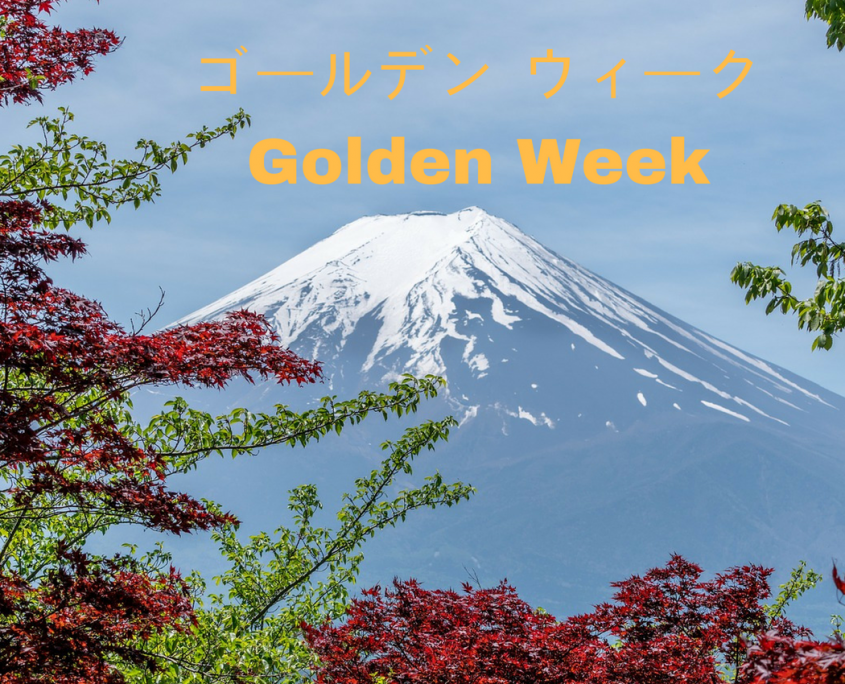Akiko Mills
3 April 2018
Japan Golden Week Holidays
From the end of April to beginning of May, Japan enters a period called ゴールデン ウィーク (gōruden wiiku, Golden Week). Well, what is Golden about it? This period is studded with national holidays, which a lot of people, adults and kids alike, look forward to.
- The “week” normally starts on 29th April, a national holiday that used to be celebrated as the birthday of Emperor Showa, who passed away in 1989. It is now celebrated as 昭和の日 (shōwa no hi, Showa Day), a day to think back on the hardship and recovery of the Showa period and to ponder the future of Japan.
- This is followed by 憲法記念日 (kenpō kinen bi, Constitution Memorial Day of 3rd May), a day to commemorate the enforcement of the present Constitution of Japan which happened in 1947.
- Since 2006, there is a national holiday called みどりの日 (midori no hi, Greenery Day) on 4th May that is set aside to encourage people to familiarize themselves with nature, acknowledging its grace and for the nurturing of the mind. 4th May falling in-between two national holidays was designated as a national holiday (unless Sunday or Monday) in 1988 before being declared as Greenery Day.
- Then こどもの日 (kodomo no hi, Children’s Day) is on 5th May to pray for the healthy growth and happiness of boys and girls.
These holidays in conjunction with Saturday, Sunday and observed holidays form the long holiday period, which is called Golden Week, a collection of four national holidays within seven days. To be precise, Golden Week is not always one week. For example this year, 2018, with 29th April falling on Sunday and the day before the Showa Day is a Saturday, if you take three days off on 30th April, 1st & 2nd May, you will have 9-day break. That actually feels very long by Japanese standards. Some factories close down for this whole extended holiday period because it’s inefficient to keep shutting them down and starting them back up on days that are not holidays. Offices tend to be open on the non-holidays but many workers use their paid leave to take an extended break.
The fabulous term “Golden Week” was originally coined in the early 1950s by movie companies who tried to attract more people to watch films by taking advantage of the “golden” opportunity. It didn’t take long for this blissful concept to spread to other industries and people’s lives. The industry that reaps the most benefit of this period now is no doubt tourism. Since the Golden Week coincides with late spring, a very pleasant season in Japan, tourist areas throughout the country are packed with people, families, the young and the old enjoying warm sunshine and fresh greenery. In recent years, increasing numbers of people travel overseas also taking advantage of the long break.
As exciting as it sounds, Golden Week can also cast a shadow on some people. Actually, May is also known for 5月病(gogatsu-byō, May disease) (Yes, there is such a word in Japan. It is not an official medical term, though). As both school and fiscal years start from April in Japan, many people start a new life such as a new school, work or even being living away from their family. They work so hard to adapt themselves in their new environment throughout April and then enter Golden Week. Their fatigue and stress catch up to them during this extended break, sometimes causing them to feel depressed or unwell by the end of Golden Week when going back to their regular lives.
Of course, this does not happen to everyone. Blessed with clear and sunny days known as 五月晴れ (satsuki bare, May sunshine), many Japanese enjoy this Golden period.
You can learn more about Japanese language and culture with our practical Japanese lessons taught in virtual classrooms.



